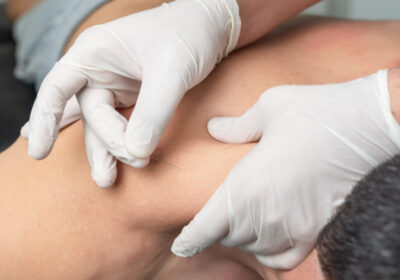
The Intricate World of Skin Issues: Understanding and Managing Common Problems
Skin, our body’s largest organ, plays a vital role in protecting us from the outside world. However, it is also susceptible to a wide range of issues that can affect its health and appearance. From minor irritations to chronic conditions, understanding these problems is essential for maintaining healthy skin. In this article, we will explore some common skin issues, their causes, and potential treatments.
Acne: More Than Just a Teenage Woe
Acne is one of the most prevalent skin conditions, affecting millions of people worldwide. While often associated with adolescence, acne can persist or even emerge in adulthood. The condition is characterized by pimples, blackheads, and cysts, which can be painful and lead to scarring. Acne occurs when hair follicles become clogged with oil and dead skin cells. Hormonal changes, stress, diet, and certain medications can exacerbate the condition.
Eczema: The Itchy Intruder
Eczema, or atopic dermatitis, is a chronic condition that causes inflamed, itchy, and red patches of skin. It often begins in childhood and can persist into adulthood. The exact cause of eczema is unknown, but it is believed to be linked to an overactive immune system response, genetic factors, and environmental triggers. Common triggers include soaps, detergents, stress, and allergens.
Psoriasis: When Skin Cells Turn Over Too Quickly
Psoriasis is an autoimmune disorder that accelerates the life cycle of skin cells. This rapid cell turnover results in thick, scaly patches that can be itchy and sometimes painful. The condition can appear anywhere on the body but is commonly found on the scalp, elbows, knees, and lower back. Factors that may trigger psoriasis include infections, injuries to the skin, stress, and certain medications.
Rosacea: The Red Face
Rosacea is a chronic condition that primarily affects the face, causing redness, visible blood vessels, and sometimes acne-like bumps. The exact cause of rosacea is unknown, but it is believed to be a combination of genetic and environmental factors. Triggers can include sunlight, hot or spicy foods, alcohol, stress, and certain skincare products.
Managing and Treating Skin Issues
While some skin conditions may require medical intervention, there are various ways to manage and improve skin health. Over-the-counter treatments, prescription medications, and lifestyle changes can all play a role in alleviating symptoms and preventing flare-ups.
For acne, topical treatments containing benzoyl peroxide or salicylic acid can be effective. In more severe cases, a dermatologist may prescribe antibiotics or retinoids. Eczema sufferers often benefit from moisturizing regularly and using steroid creams during flare-ups. Psoriasis treatment options include topical treatments, phototherapy, and systemic medications. For rosacea, gentle skincare routines, sun protection, and avoiding known triggers can help manage symptoms.
Embracing Holistic Approaches
In addition to conventional treatments, many people seek alternative therapies for skin health. One such approach is homeopathy for overall skin health. Homeopathy is a holistic system of medicine that aims to stimulate the body’s natural healing processes. Remedies are tailored to the individual’s specific symptoms and overall health, potentially offering relief for various skin conditions.
For example, homeopathic treatments for eczema might include remedies like sulphur or graphites, chosen based on the person’s unique symptoms and constitution. Similarly, homeopathy can be integrated into a broader skincare regimen to support overall skin health and address underlying issues.
Conclusion: The Journey to Healthy Skin
Dealing with skin issues can be challenging and often requires a multifaceted approach. Understanding the causes and available treatments is the first step towards managing these conditions effectively. Whether through conventional medicine, lifestyle changes, or alternative therapies like homeopathy for overall skin health, there are numerous pathways to achieving healthy, radiant skin.
Remember, everyone’s skin is unique, and what works for one person may not work for another. Consulting with healthcare professionals and being open to trying different approaches can help you find the best solutions for your skin.


















